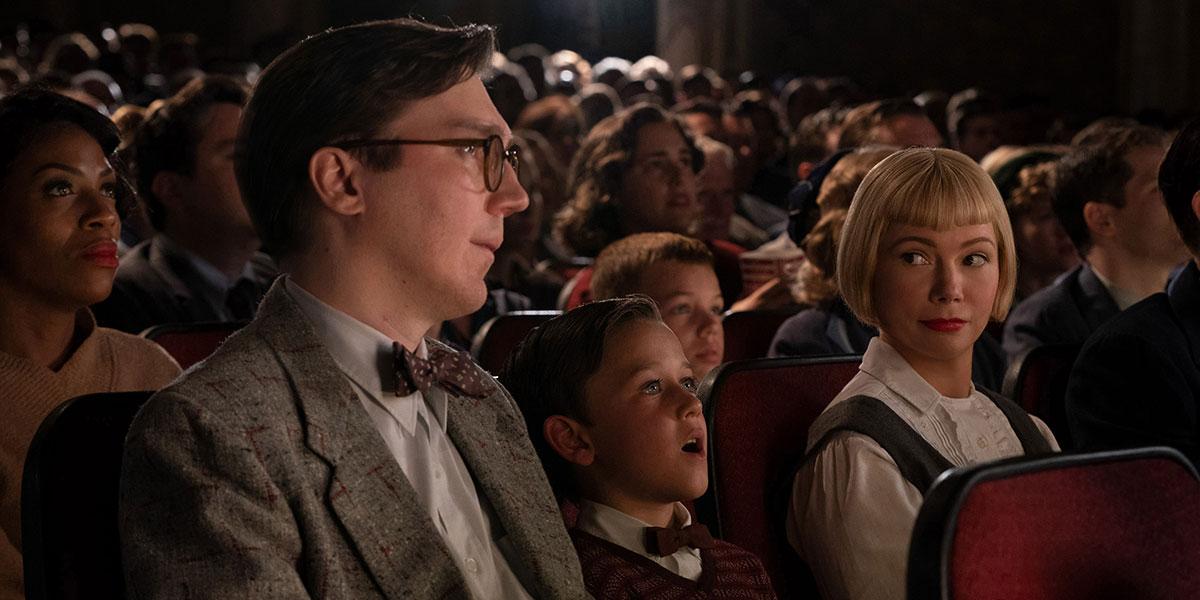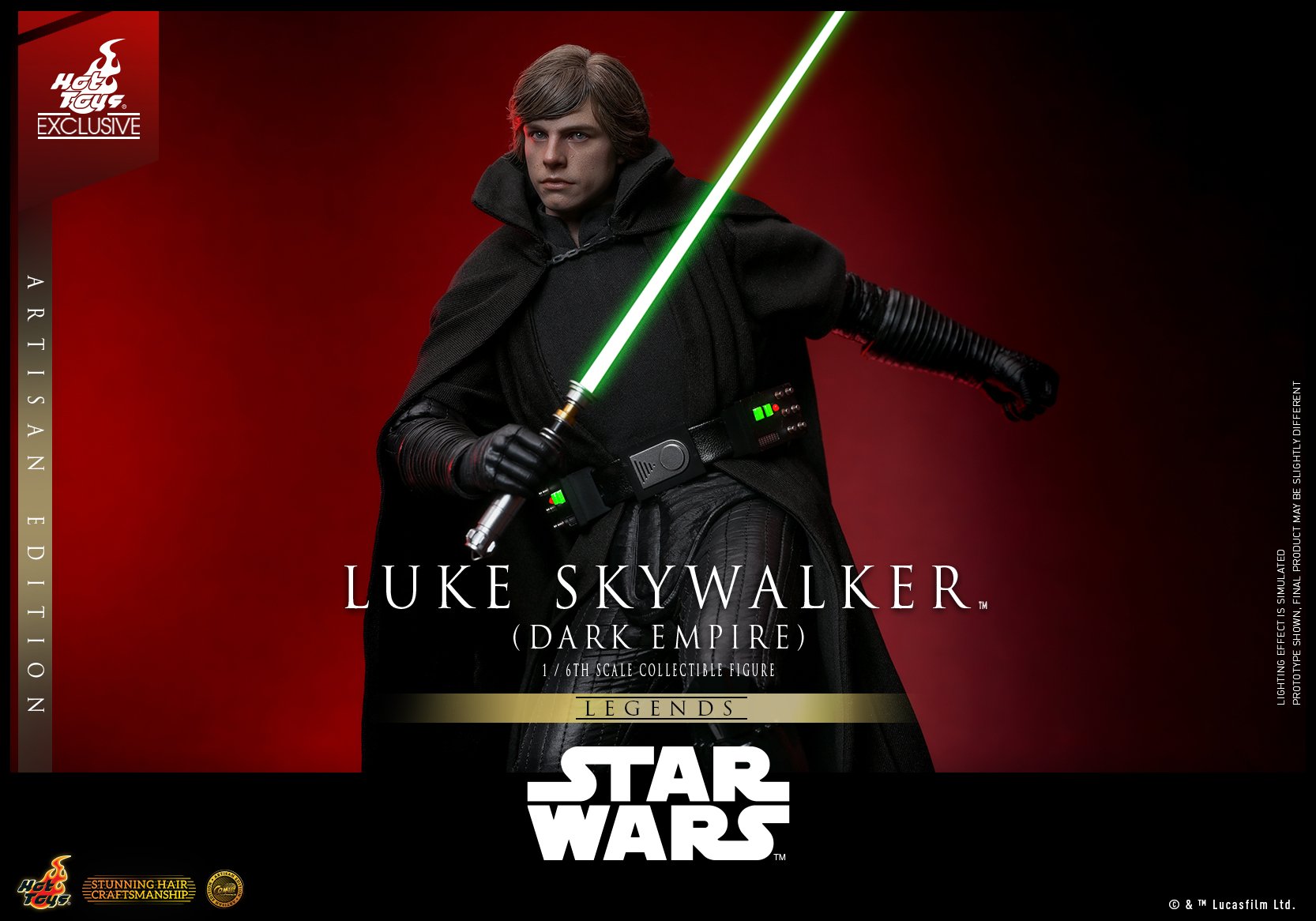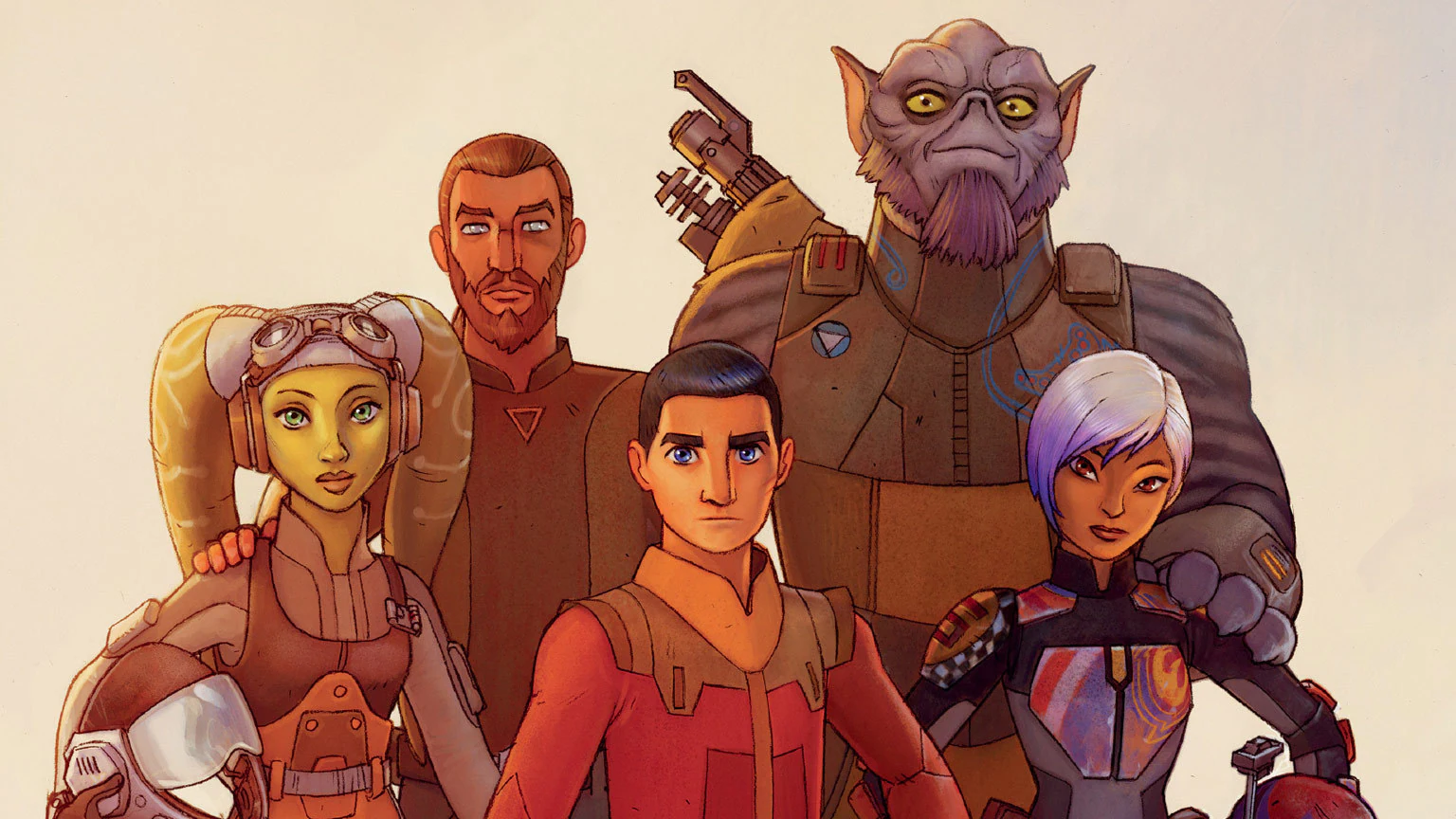‘The Fabelmans’ Review: Steven Spielberg Takes His Time To Tell a Relatable Story About Dreams and Force of Will

Paul Dano (Burt Fabelman), Mateo Zoryan (Sammy Fabelman), and Michelle Williams (Mitzi Fabelman) in Steven Spielberg’s The Fabelmans.
It’s been a few decades since the last time we as an audience have been so aware in the moment of how real life is influencing the movies we’re seeing. Looking back, we can definitely run some conclusions about what the world looked like back then by watching a selection of films from the 1990s or the 2000s, but it’s been a while since a collection of movies informed us so well about what the audience, and in particular our filmmakers, are going through right now. In 2022, those include Empire of Light, Aftersun, Babylon, and yes, The Fabelmans.
This is something I already touched upon when reviewing Sam Mendes’ latest film, but it’s definitely worth bringing up again. When our filmmakers had some time to pause and think, they started looking back at their lives and developed a sense of nostalgia that helped them understand, perhaps better than ever before, why they love (making) movies. That was the case for Steven Spielberg too, who revisited his childhood growing up in a family with two vastly different Jewish parents and how that environment helped him grow personally.
The film is semi-biographical, with most people having different names, and a few missing gaps in the director’s journey being filled by fictional stuff, but the core elements of what his household was like stay true to his real life. Michelle Williams stars as Mitzi Fabelman, mother of four children and stay-at-home wife of Burt Fabelman (Paul Dano), who will soon reconnect with her love for playing the piano. She is quite eccentric and usually craves to be the center of attention, sometimes without even realizing that is the case. Her husband, a soon-to-be successful engineer who is decades ahead of his time in his understanding of computers, is essentially addicted to work and in general quite absent from daily family life.

Mateo Zoryan (Sammy Fabelman) and Michelle Williams (Mitzi Fabelman) in Steven Spielberg’s The Fabelmans.
Williams might be the female lead, but the true protagonist of the story is young Sammy Fabelman, who is played by Mateo Zoryan in his younger years and by Gabriel LaBelle in his teens, which take up around two-thirds of the film. Over the course of two and a half hours, we see him grow from the moment he stepped foot into a movie theater to the first job he had in the film industry. Spielberg, who co-wrote the film with Tony Kushner, clearly did a lot more than go down memory lane, as the film taps into some of his more unpleasant memories, including revisiting his parents’ troubled marriage. His father, a hard worker if there ever was one, was very calculating and precise, and his mind operated at a level above anyone else around him, which sometimes caused for a disconnect between speaker and listener. His mother, on the other hand, as an artist herself, was always very supportive of Sammy’s love for movie-making, something his father always failed to see any different than a hobby.
The Fabelmans is the story of a boy who realized growing up he was better at expressing himself through moving pictures than he was with words. It is the story of how one of the most imaginative minds of our time came to be, being raised by two opposite sides of the spectrum. He managed to bring the best of both worlds together — his father taught him how to work harder than anyone else, while his mother taught him to see beyond his wildest dreams and never allow anyone to tell him to have his feet on the ground.
Because this story is so personal to Spielberg and his family, there will be some audience members that don’t fully connect with it, and for those, it might come across as yet another film they saw. This was the case for me during the film’s first two acts, roughly speaking (The Fabelmans adheres more to a five-act structure than it does to the traditional three-act), but then, uncle Boris showed up. Early reviews for the film had praised a pivotal scene with Judd Hirsch playing Sammy’s uncle; a scene so powerful it caused thunderous applause at the Toronto Film Festival premiere when it was over, and included a performance so extraordinary it gave Hirsch an Oscar nomination (his screentime in the film is no longer than ten minutes). Well, I thought the scene was quite good and Hirsch was excellent, but if I may, I certainly don’t think it was deserving of an Oscar nomination, especially considering The Fabelmans features one of the best performances I’ve seen Paul Dano give.
This scene, however, does play a key role in the film. It is almost a tipping point for the story, which gained a lot of momentum and even a sense of building towards a clear end after it. A few things happen to Sammy Fabelman in his teenage years that allowed me to explore my own childhood and relate to Sammy’s experiences on a more intimate level. The true power of the film lies in the viewer’s ability to relate to what the lead character is going through, finding what is true for him and allowing himself to embrace it, no matter what the world around him thinks or tells him.

Gabriel LaBelle (Sammy Fabelman) and Chloe East (Monica Sherwood) in Steven Spielberg’s The Fabelmans.
Spielberg takes a few swings during the final 30 minutes, and while I’m not sure how much of it was true to what happened to him in high school, it fully worked for me. The final scene of the film is the literal translation to the screen of “Did I ever tell you about the time I met John Ford?”, and the film’s brilliant final shot alone tells us as much as we need to know about Spielberg today as the previous 150 minutes.
The filmmaker also brought along some of his regular collaborators — Janusz Kaminski’s cinematography is as beautiful as it’s ever been, and Michael Kahn hasn’t lost a bit throughout the many decades he’s been working with Spielberg. He co-edited the film alongside Sarah Broshar, who has also been working with the Jurassic Park director for this past decade. Unfortunately, John Williams’ score was a bit of a letdown — it rarely stands out, and the Spotify tracklist is barely 30 minutes long, including a few themes that aren’t even his. Even the last few moments of the film seemed to be borrowed from previous John Williams scores.
All in all, The Fabelmans is an excellent piece of filmmaking which takes its time, but once it hooks you, it never lets go. It is currently showing in theaters worldwide and will soon be available on PVOD in the US.
Miguel Fernández is a Spanish student that has movies as his second passion in life. His favorite movie of all time is The Lord of the Rings, but he is also a huge Star Wars fan. However, fantasy movies are not his only cup of tea, as authors like Scorsese, Fincher, Kubrick or Hitchcock have been an obsession for him since he started to understand the language of filmmaking. He is that guy who will watch a black and white movie, just because it is in black and white.







